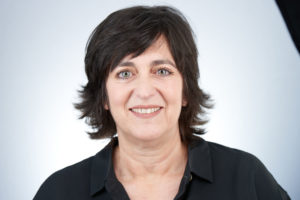PAD is caused by the buildup of fatty material inside the arteries. 
PAD (peripheral artery disease) is a circulation disorder and those with it are at a much higher risk of heart problems and generally have a much higher rate of amputations and death from heart attack or stroke. “If there’s poor blood flow to your legs and feet, you’ll have pain, cramping or wounds that won’t heal,” explained Rainwater. If you ignore these signs, it may lead to an amputation. “If you get an amputation because you have PAD, your life expectancy is worse than if you had breast cancer or lymphoma. PAD is no joke.”
In some cases, people have been diagnosed with, or think they have, neuropathy. The symptoms of neuropathy and PAD are very similar and include difficulty walking without taking a break, burning, tingling, numbness and/or pain. “When I see a patient who has been told they have neuropathy and they’ve been maximized on medication that’s not working, I know there may be something else causing it and one of the big, notorious offenders in that scenario is PAD,” said Rainwater.
PAD is caused by the buildup of fatty material inside the arteries. This build-up occurs gradually over time and hardens into plaque inside the artery. This condition is known as atherosclerosis. Sometimes, it’s called “hardening of the arteries.” No matter what you call it, this plaque causes a narrowing of the passageway, restricting the amount of blood that flows throughout the body.
Without an adequate blood supply, your body can’t get the oxygen and nutrients it needs to maintain healthy legs, feet and toes. “This is something we can fix,” explained Rainwater. “The good news about PAD is that there’s hope. There is treatment and it’s excellent, it’s been one of the biggest success stories in all of medicine.” Patients are able to get back on their feet and everyday living with almost no downtime, no stitches and no overnight hospital stay. Medicare as well as most insurance plans will cover treatment. Rainwater said, “The method of diagnosis, the treatment was unheard of 20 years ago. It’s become so sophisticated and so easy for the patient to tolerate that there’s no reason not to seek answers for this condition.”
Dr. Rainwater’s focus is on teaching people to recognize PAD and take action. “I’m here to tell patients that there are options, all they have to do is ask. They might have to ask a different doctor, but they don’t have to live with the idea that they’re going to suffer for the rest of their life,” said Rainwater. His best advice: “Go look for answers.” FBN
By Reisha Zang
Reisha Zang is the director of patient education at Comprehensive Integrated Care, 602-909-8891.





